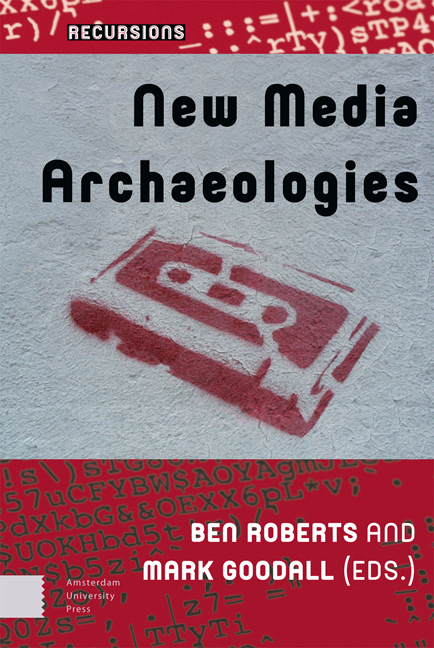7 - Media Archaeology and Critical Theory of Technology
Published online by Cambridge University Press: 21 November 2020
Summary
Abstract
This chapter examines the ways in which media archaeology addresses technological change. The term media archaeology encompasses a range of different approaches and attitudes to technology, from those that seem to embrace a certain kind of technological determinism to others that use archaeological perspectives to critique the idea of progress and produce nonlinear accounts of technical history. The aim here is to place these accounts in the wider context of critical theory of technology. The chapter pursues this argument through a close reading of the work of Walter Benjamin, Wolfgang Ernst and Bernard Stiegler.
Keywords: Benjamin, Ernst, Stiegler, Media Archaeology, Critical Theory.
This chapter examines the ways in which media archaeology addresses technological change. The term media archaeology encompasses a range of different approaches and attitudes to technology, from those that seem to embrace a certain kind of technological determinism to others that use archaeological perspectives to critique the idea of progress and produce nonlinear accounts of technical history. The aim here is to place these accounts in the wider context of critical theory and philosophy of technology.
It is crucial to understand that media archaeology is both a new way of studying media and also a new way of thinking about technology. In this sense, it can also be seen as a return to the concerns of what has become known as medium theory (Meyrowitz, 1985, p. 16). Media archaeology focuses more on the apparatus itself as a mode of recording and organizing experience, as well as the cultural practices surrounding its use. As Wolfgang Ernst puts it, ‘[it] concentrates on the non-discursive elements in dealing with the past: not on speakers, but rather on the agency of the machine’ (Ernst, 2005, p. 591). However, at the same time as embracing the technological constitution of media, media archaeology also questions existing doxa surrounding media-technological developments. That is, it interrogates traditional narratives about technical development or teleological accounts of progress, emphasizing instead discontinuities or the cyclical nature of change (Parikka, 2012). Media archaeology highlights the material form of media apparatus and devices at the same time as questioning the way we think about technological transformation.
As such, and as will be argued here, one might well see media archaeology as a form of philosophy of technology and one that has a particular relationship with what one might call ‘critical theory of technology’.
- Type
- Chapter
- Information
- New Media Archaeologies , pp. 155 - 174Publisher: Amsterdam University PressPrint publication year: 2019



